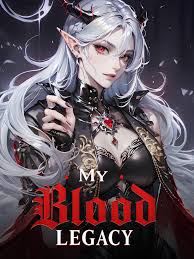The Story in 3 Sentences
Ceaser awakens in the body of a doomed side character—the childhood friend of the heroine—destined to die early as a narrative stepping stone for her growth.
Refusing to accept his scripted fate, he leverages his knowledge of the original story and an enigmatic curse to carve a new path, disrupting the plot’s intended trajectory.
As he navigates shifting alliances, divine conspiracies, and emotional entanglements, Ceaser uncovers truths about the world and himself that even the original novel never revealed.
Why It Stands Out
1. The Anti-Sacrifice Sidekick
Most reincarnated side characters either embrace their tragic role or become villains—Ceaser does neither. He insists on living without betraying his morals, turning survival into an act of quiet rebellion against narrative destiny.
2. Emotional Realism in a Harem Framework
Despite harem tropes, the novel grounds its romantic tensions in genuine emotional wounds—abandonment, mistrust, longing—making relationships feel earned rather than automatic, even when fans critique their execution.
3. A Curse That Cuts Both Ways
Unlike typical overpowered systems, Ceaser’s strength comes from a curse that isolates him, distorts his humanity, and forces constant moral reckoning—power isn’t free, and every gain carries existential weight.
Characters That Leave a Mark
There’s Sarah – the loyal companion who endured separation and sacrifice long before Ceaser’s arrival, her devotion rooted in shared history rather than sudden infatuation.
You’ll meet Celestria, who embodies the original heroine’s arc but fractures under the weight of guilt, desire, and impulsive choices that alienate even sympathetic readers.
And Valarie? They’re the one who offers clarity amid chaos—cool-headed, perceptive, and unswayed by drama, serving as both foil and anchor to the emotional whirlwind around Ceaser.
The Flaws Fans Debate
The harem dynamics often collapse into repetitive simping, with distinct heroines losing individuality past chapter 180 and converging into variations of the same tearful admirer.
Pacing suffers from rushed world-building and abrupt power escalations, especially when divine entities are introduced, muddying the magic system and diminishing earlier stakes.
Ceaser forgives Celestria too readily after her betrayal and manipulative behavior, undermining his otherwise sharp judgment and frustrating readers who expected emotional accountability.
Must-Experience Arcs
Ch. 1–15: The Prisoner’s Awakening – Ceaser survives his fated execution, discovers his cursed regeneration, and confronts the heroine who once abandoned him, setting the tone for his defiance of destiny.
Ch. 49–65: Farewell and Reconnection – After a painful separation, Ceaser rebuilds his life away from the capital, only to be drawn back by threats that force uneasy reunions and reveal hidden loyalties.
Ch. 212–230: The Revenge Arc – Divine schemes surface as Ceaser faces orchestrated trials meant to break him; instead, he weaponizes his curse, exposing godly interference and reshaping the world’s balance.
Killer Quotes
“Side characters are the best ones to reincarnate as—until you realize you’re the one meant to die so the story can begin.”
“Power without purpose is just another kind of prison.”
“I didn’t come here to play my part. I came here to rewrite the ending.”
Cultural Impact
Fans passionately debate Celestria’s role, with “Team Sarah” memes flooding comment sections and Discord servers, turning romantic preference into a community identity.
The novel sparked discussions about ethical reincarnation narratives—can you change fate without becoming the villain the story warned you about?
Despite mixed reviews on writing depth, it remains a staple recommendation in “underrated harem fantasy” lists across Reddit and Webnovel forums.
Final Verdict
Start Here If You Want:
A reincarnation story where survival itself is rebellion against narrative fate.
A harem with emotional stakes beyond fan service, even if execution wavers.
An overpowered MC whose strength comes with psychological and moral costs.
Study If You Love:
Deconstructions of isekai tropes through the lens of side-character agency.
The tension between predestination and free will in closed narrative universes.
How romance functions when love interests are tied to the protagonist’s trauma, not just his power.
Avoid If You Prefer:
Slow-burn character development over fast-paced, plot-driven progression.
Consistent world-building without late-stage divine retcons.
Protagonists who maintain clear emotional boundaries rather than forgiving repeated betrayals.





